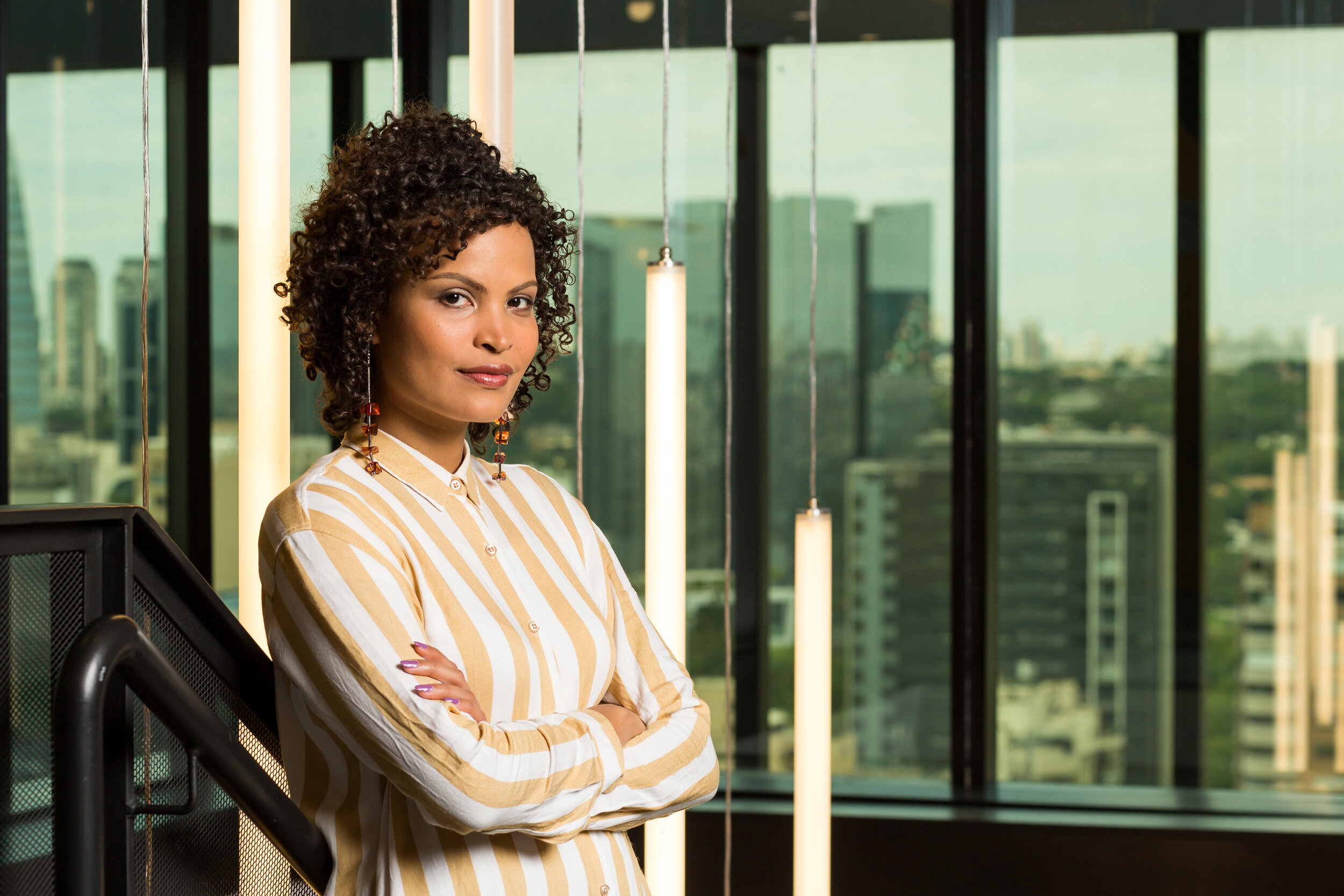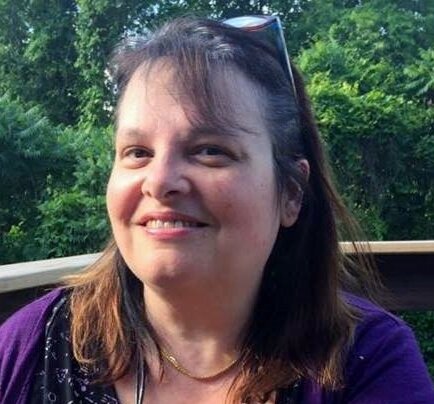Elizabeth (she/her) is an MBA candidate at the University of Oxford. Born and raised in Washington, she moved to California in 2014 to attend Santa Clara University and intern as a software engineer in the Silicon Valley tech scene. She holds both a BS and MS in Computer Science from Santa Clara and Oxford, respectively, and specializes in cybersecurity. In her free time, Elizabeth enjoys playing the harp, snuggling with yellow labs, drinking coffee, and running.
1. What do cybersecurity and crypto mean to you?
Since cybersecurity is such a vast field, I’m struggling to develop a singular idea of what it means to me. Skip the next couple paragraphs if you don’t want a math lesson. :-)
I see cryptography as using the most beautiful phenomena from mathematics to make sure that all of the data we create and technology we use is safe from exploitation. Having studied it in both undergrad and grad school, I’ve come to realize how incredible the math that serves as the foundation for public and private key encryption, smart contracts, digital signatures, hashing, and decentralized consensus algorithms is.
Crypto is “beautiful” because much of it relies on problems that are computationally intractable, particularly those from number theory. For example, prime factorization is the process of factoring an integer (N) into its prime factors (a, b). To find N, all we have to do is multiply its prime factors together. Even if N is insanely large (hundreds of digits), computers can quickly arrive at this product. The inverse is not true, however. Given a sufficiently large N, finding its prime factors will require too much time and/or computational resources, assuming a quantum computer isn’t running Shor’s algorithm. Clearly, the difficulty and resources required to solve for a given variable in this single equation (N = a*b) varies significantly. We leverage the dualistic property of many intractable problems by giving authorized systems the “easy” calculation and unauthorized systems (i.e. hackers) the “hard” calculation. This keeps our data and networks safe!
“We leverage the dualistic property of many intractable problems by giving authorized systems the “easy” calculation and unauthorized systems (i.e. hackers) the “hard” calculation. This keeps our data and networks safe!”
There’s so much “buzz” around fields like deep learning and robotics, which I think has made cybersecurity deeply underrated; the R&D in cyber is very exciting. Blockchain is being applied to elections to prevent voter fraud, protocols for device authentication and security are being redesigned in the face of 5G, machine learning is being conducted on encrypted datasets the size of terabytes, and new mathematics that are quantum resistant are being discovered. And these are just a few of the cool things going on right now!
Cybersecurity will also never become obsolete. Even as technologies evolve and are tweaked to near perfection, the threat of human error will persist. There will always be people who continue to click on phishing emails, write their passwords on post-its which are then lost, or charge their devices with malware-infected lightning cables. This is why social engineering is critical to preventing cyber-attacks.
2. If you could wave a magic wand and solve one problem in tech, what would it be?
Diversity and inclusion initiatives in tech! Shocker.
Specifically, measures aimed at retention, as opposed to recruitment. I’ve witnessed and participated in my fair share of tech D&I over the years — companies that assign you to a “diversity” recruiter, scholarships with lengthy eligibility conditions, Lean In circles, and women in STEM conferences, to name a few.
I don’t think convincing talented minorities to join companies or pursue technical degrees is the primary problem. It’s one thing to open an opportunity to someone, but it’s another to actually create an environment where that person can flourish. Hiring a qualified woman but not giving her any support or tools to navigate the male-dominated tech space often does more harm than good.
“It’s one thing to open an opportunity to someone, but it’s another to actually create an environment where that person can flourish.”
This is why initiatives that focus on retention are so important. Improving them can help reduce cases of harassment, imposter syndrome, and other consequences of the homogeneous and sometimes, hostile, tech sphere. Even if companies change their culture, it’s impossible to convince every employee to do the same. So this problem is also at the team level, which is why it’s so complex and nuanced.
3. What is a piece of advice that you have found especially useful?
Don’t be quick to judge — there’s always a reason for someone’s actions.
I struggle with this each day, whether I’m collaborating with a classmate who came unprepared, buying groceries from a cashier who didn’t acknowledge my hello, complaining about the design of a product, or ridiculing a politician’s latest interaction with the press. I’m not saying that the reason for a person’s actions is always right, but I think we all need to put more effort into understanding one other, or at least trying to empathize.
4. What’s a challenge you’ve faced, and how did you deal with it?
Enrolling in an MBA program at age 23.
This past September, I graduated with a Master’s (MSc) in Computer Science. A couple weeks later, I began my MBA. To be honest, I expected my transition to the MBA program to be much easier. In fact, I’m nearly three months in and still don’t feel adjusted or particularly excited by my coursework.
During my MSc, I had to deal with moving to a different continent and studying at a new school (University of Oxford) at the graduate level, yet I found that transition to be a lot easier than this year’s. For one, the subject was familiar to me, as I had studied Computer Science/Physics/EE extensively in undergrad; the MSc in Computer Science was a natural academic progression for me.
The MBA is an entirely different experience. Before September, I knew *nothing* about business. I couldn’t even explain the difference between revenue and profit! The average age of my peers in the cohort is 28, which means that even those who didn’t enter with a business degree were at least familiar with the lingo from years of work.
I’ve spent hours reading case studies riddled with terminology and references that are foreign to me yet “common knowledge” in the business world. I’ve chatted at networking events with McKinsey employees, and still had no clue what they actually do. I’ve worked through Wall Street Prep Excel tutorials, but am still not able to model a simple linear regression.
I’ve felt this discouragement and imposter syndrome make me question if I’ll be successful in a job post-graduation. I realize it’s an unhealthy mindset, so I’m trying to be more aware of when I enter the downward spiral. It’s really tough, but it’s getting easier with practice. I might not reach concepts as quickly as my peers, but the important thing is that I keep pushing myself and don’t belittle my successes by measuring them against those of my peers.
5. What is your favorite source of inspiration?
I’m an introvert, so I often find I’m at my most productive and inspired when I’m alone. My best times are probably when I shower or go on early morning walks/runs in the meadow near my college.
Instagram is also a great place to source creativity and exchange ideas. My go-to Instagram handles of late are:
Thought-provoking: @melindafrenchgates, @mariashriver, and @esrigram.
Adorable: @mybestfriendhank and @tuckerbudzyn.
6. What is your favorite book or movie?
Books:
Grit by Angela Duckworth. This book is a must-read. Through numerous science experiments, Duckworth (a fellow Oxford grad) shows that grit is the single most important factor in determining success. I’ve never been naturally “gifted” — I had tutors for math and reading in grade school, my SAT and GRE scores were abysmal, and it still takes me at least twice the amount of time of my peers to complete a problem set. Grit is a positive reinforcement on the power of showing up, putting in effort, trying again, and having a passion and purpose for what you do.
The Life-Changing Magic of Tidying Up by Marie Kondo. It’s remarkable how a clean and organized room makes for a much clearer mind and positive mindset.
Movie:
My dad recently sent me a USB stick loaded with dozens of home videos from the first decade of my life. It’s very entertaining!




















